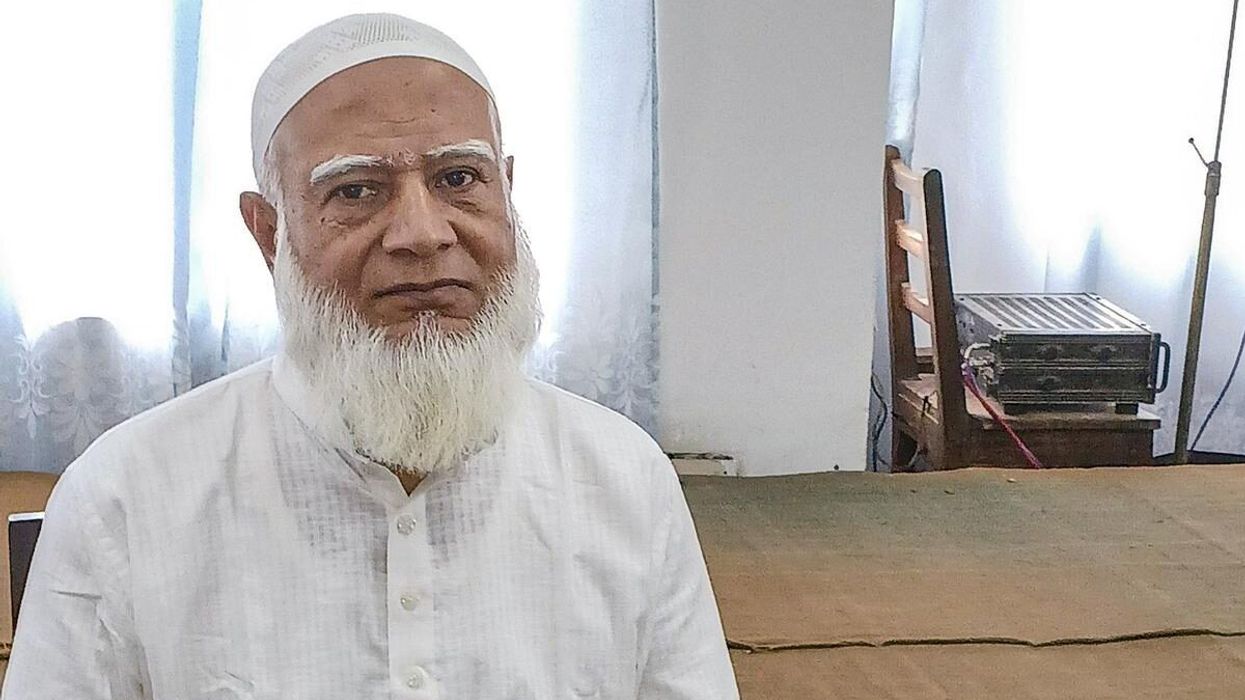Shafiqur Rahman, leader of Bangladesh Jamaat-e-Islami, has called for a reassessment of India’s foreign policy towards its neighbours, emphasising that mutual respect and non-interference are key to harmonious relations.
Rahman, in an interview with PTI, stated that while his party seeks strong ties with India, it also advocates for balanced relationships with other major powers, such as the US, China, and Pakistan, suggesting that Bangladesh should leave behind past conflicts and engage with all countries constructively.
Rahman argued that India’s perception of Jamaat-e-Islami as anti-India is misguided, asserting, "Jamaat-e-Islami is not against any country; it is a wrong perception. We are pro-Bangladesh and focused on safeguarding our country's interests," and highlighted the need for a change in this viewpoint.
He also mentioned that it would have been preferable if former prime minister Sheikh Hasina, who recently resigned amidst unrest, had not sought refuge in India but instead returned to Bangladesh to face legal proceedings.
Rahman underscored that while his party values a good relationship with India, it also believes that both nations should avoid interfering in each other's internal matters, pointing to past incidents where India was perceived as overstepping its bounds during Bangladesh’s 2014 elections.
He suggested that India reconsider its foreign policy towards Bangladesh to foster a non-interfering, cooperative bilateral relationship.
Rehman stated that Jamaat-e-Islami desires India to be a “friend and play a responsible role in bilateral ties,” while also emphasising that his party acknowledges its responsibility to improve relations but insists that these ties must remain “non-interfering in each other's internal issues.”
“Working together and interfering are two different things. Working together has a positive connotation, whereas interference is negative. Bilateral ties should mean cooperation and mutual respect. India is our closest neighbour; we share both land and sea borders, so we should have good ties as you cannot stay away from your neighbour,” he told PTI in Dhaka.
Rehman acknowledged that while Jamaat-e-Islami had interactions with the Indian establishment in the past, these contacts diminished during the Awami League rule over the last 16 years, but he believes that "effective relationships with India can now be re-established."
Replying to a query on allegations of attack on Hindus in Bangladesh by Jamaat activists, Rahman refuted the allegations as "baseless".
Rahman attributed the negative portrayal of Jamaat-e-Islami to a malicious media campaign and noted that, despite being the worst sufferer of the atrocities committed by the Sheikh Hasina government over the past 15 years, “But still we are on the ground, and Jamaat still enjoys people's support.”
Regarding relationships with Pakistan, Rahman said, “We want good ties with them as well. We seek an equal and balanced relationship with all our neighbours in the subcontinent, including India, Pakistan, Nepal, Myanmar, Bhutan, and Sri Lanka. This balance is crucial to maintaining stability.”
Bangladesh, earlier known as East Pakistan, was born out of Pakistan following the Liberation War in 1971. Regarding diplomatic ties with other global powers, Rahman said, “We seek balanced and stable ties with world powers like the US and China, as in this globalised world, we are interconnected in various ways.”
On the recent flood situation in Bangladesh, Rehman stated that India should have provided prior information to Bangladesh before releasing water.
“We are not saying that India is to blame for the heavy rains, but India should have informed us before releasing water so that we could better manage the situation and save lives. We believe this dam should not be there at all, and water should be allowed to follow its natural course,” he said.
His comments come amid reports from Dhaka blaming India for the floods in Bangladesh. Monsoon rainfall-triggered floods in deltaic Bangladesh and upstream Indian regions have resulted in several deaths and affected nearly three million people in Bangladesh, posing a significant challenge to the newly installed interim government amid a political transition.
India recently described factually incorrect reports in Bangladesh suggesting that the current flood situation in certain areas has been caused by the opening of a dam on the Gumti River in Tripura. India's Ministry of External Affairs has stated that floods in shared rivers between the two countries are a "shared" problem affecting people on both sides and require close mutual cooperation to resolve.
Speaking about Sheikh Hasina's decision to flee to India, he said: “It would have been better if she had not fled. I don't want to use the term extradition, but we believe she should return and face the law in Bangladesh.”
After unprecedented anti-government protests that peaked on August 5, Hasina resigned as prime minister and fled the country.
She arrived in India on August 5 and is currently residing there, leading to speculation in Bangladesh. The interim government in Bangladesh has revoked the diplomatic passports of ousted prime minister Hasina and all members of her former Cabinet.
Rahman stated that Jamaat will participate in the elections in Bangladesh whenever they are held.
“We believe the interim government should be given time, but it should not be indefinite. We will clarify our position on the timing of fresh elections in due course. But whenever elections are held, we will participate,” he said. (PTI)




